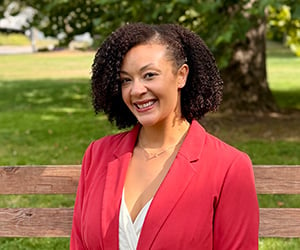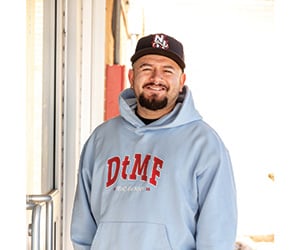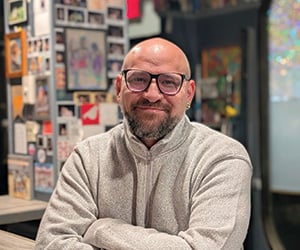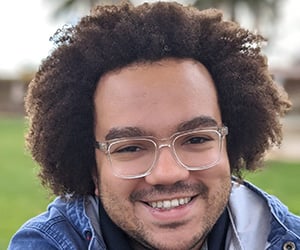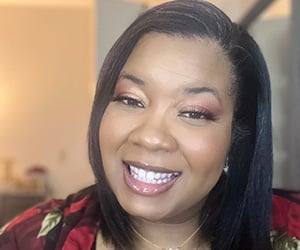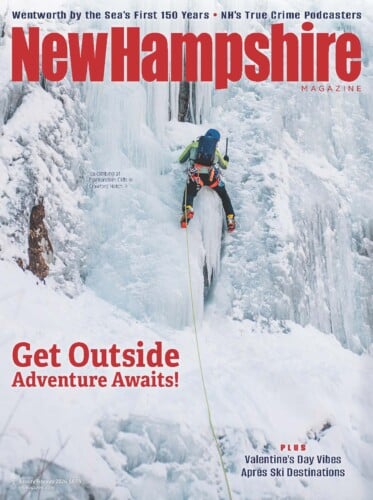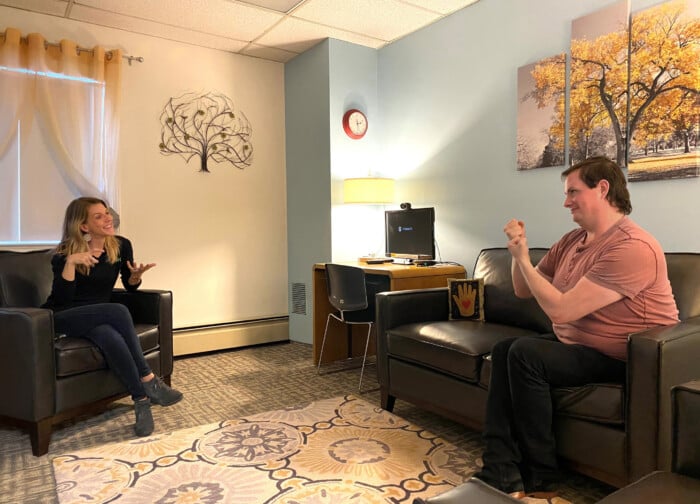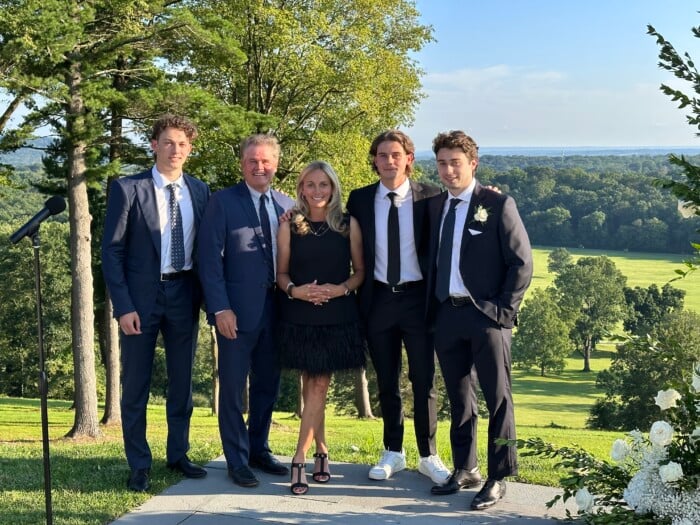A story that reverberates still
Manchester Choral to sing ‘Considering Matthew Shepard’ during Pride Month
 Nearly three decades after Matthew Shepard, a gay University of Wyoming student, was murdered, the fight for acceptance and against bigotry remains just as relevant.
Nearly three decades after Matthew Shepard, a gay University of Wyoming student, was murdered, the fight for acceptance and against bigotry remains just as relevant.
That is among the reasons the Manchester Choral Society will perform “Considering Matthew Shepard” on June 6 and 8. The ensemble is comprised of 65 auditioned community members ranging from teenagers to octogenarians and led by Dan Perkins.
“As a 501(c)(3), we cannot make political statements, but we can make social statements. I chose the piece last year,” Perkins says. “I just really felt that the issue of hate crimes and the issue of acceptance of everyone — regardless of belief or lifestyle or gender or any of those things — it has to be respected. So that was a big, big motivator.”
“Considering Matthew Shepard,” written by the American composer Craig Hella Johnson, tells the story of Shepard’s life and death, the immediate and lasting response it evoked, and its deeper implications.
Musically, the piece is about an hour and a half long without intermission. This three-part oratorio’s 33 movements blend diverse musical styles.
“The musical style has huge variety,” Perkins says. “There’s a country element. There’s a piece that has a little bit of a gospel feel. Some of the rest is more popular music style. And then, of course, there are other elements that hearken to classical music and older styles like Bach.”
The lyrics and recitations come from a variety of primary and secondary sources, including Shepard’s diary, recordings from Matthew’s mother and father, and news clippings.
“I was having conversations with people who didn’t know who Matthew Shepard was,” Perkins says. “I thought, well, that’s shocking, and I think it’s maybe a good time for us to bring this story to Manchester audiences.”
 Shepard was a 21-year-old student at the University of Wyoming on October 6, 1998, when two young men kidnapped him, drove him to a remote spot, viciously pistol-whipped him, tied him to a split-rail fence and left him to die, which he did in a hospital less than a week later.
Shepard was a 21-year-old student at the University of Wyoming on October 6, 1998, when two young men kidnapped him, drove him to a remote spot, viciously pistol-whipped him, tied him to a split-rail fence and left him to die, which he did in a hospital less than a week later.
His murder and the trials of his killers become international news, highlighting that, though the gay rights movement had made advances, homophobic sentiments lingered. Shepard’s death inspired new pushes toward tolerance and anti-discrimination, but also drew out religious fundamentalists who protested against homosexuality.
“Bach wrote several oratorios about that — the Passion of Jesus Christ and the story leading up to the crucifixion. This piece quotes some of that style with the crowd yelling, ‘Crucify Him, Crucify Him,’ … and that’s a horrendous movement, because it is representing the Baptist church that came to protest at Matthew Shepard’s funeral,” Perkins says. “They were outside of the church yelling horrible, horrible things, so in a similar kind of mob, violent way as Bach did in his 17th century oratorio.”
A 2009 federal anti-hate crime law bears Shepard’s name and that of Joseph Byrd Jr., a black Texan who was brutally murdered by three white supremacists the same year.
Despite the heaviness of the homophobia that surrounds Shepard’s death, Perkins says the piece is not all doom and gloom.
“The work is designed to lead the audience and the singers with a sense of hope, and love and kindness,” Perkins says. “There are some emotional moments, but it really does lift everyone up.”
Ultimately, the concert is an opportunity for people to come together and share a musical experience.
“I hope people will be inspired by the story and moved by the story and informed by the story,” Perkins said. “It speaks to the larger issue of hate in our society and our fear of the unknown, fear of the other, fear of outsiders, fear of what we don’t understand. And so, I really hope audiences will come away with a new or renewed desire to learn about people who are different and find ways to find commonalities.”
The concerts will take place June 6 at 7 p.m. and June 8 at 3 p.m. at The Venues at the Factory, 252 Willow St. in Manchester. Ticket information can be found at mcsnh.org.
This article was featured in 603 Diversity.
603 Diversity’s mission is to educate readers of all backgrounds about the exciting accomplishments and cultural contributions of the state’s diverse communities, as well as the challenges faced and support needed by those communities to continue to grow and thrive in the Granite State.

